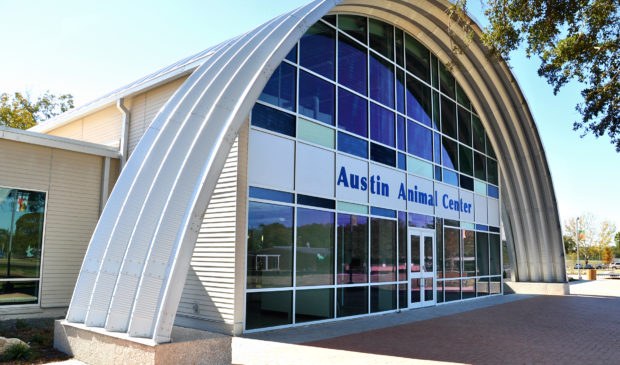Animal Advisory Commission looks to reform operations at city shelter
Thursday, July 22, 2021 by
Sean Saldaña At last week’s meeting of the Animal Advisory Commission, commissioners voted to form a working group aimed at addressing the ongoing capacity crisis at the Austin Animal Center.
The move came after Chief Animal Services Officer Don Bland sent a memo to City Council and Mayor Steve Adler noting that the lack of space may create the need to mark some animals within the center for euthanasia. The news provoked a strong reaction from the community.
This week, the commission reconvened to discuss the first meeting of the working group. While there are a number of factors contributing to the kennel space crisis, commissioners primarily focused on those the shelter can control, such as operational improvements that can help expedite the adoption process, freeing up space in the facility.
One of the issues the group has focused on is accurate reporting about the status of AAC. Commissioners have had difficulty getting accurate data on things like intakes and vet records, which can make it challenging to identify specific areas for improvement.
Commissioner Palmer Neuhaus said that the commission was not “receiving accurate data or complete reporting …. It still appears that data for lost and found animals are still commingled with data for animals that actually have intaked into the shelter.”
That said, there are a few areas where policy changes have been requested, one of them being the operating hours of the Pet Resource Center, a division of AAC that helps residents solve issues such as pet-rehoming and found animals, and also serves as a public intake department.
Currently, the PRC is closed on weekends, a time when many Austin residents would make use of its services.
Bland points to a lack of staffing as the cause for the PRC’s closure. He told the Austin Monitor that AAC is in “great need of additional staff. Austin has grown with more and more people and pets, but we have not been able to increase our personnel to keep pace.”
Though the working group recognizes the lack of staff as a legitimate issue, commissioners feel as if AAC could do a better job of engaging the community and recruiting volunteers as a stopgap.
Speaking at the meeting on Monday, Commissioner Monica Frenden noted, “There are no postings for volunteers at the PRC on the agency’s website – none at all,” and there are only a handful of volunteer orientations scheduled for the coming months.
In response, Bland went on to note that AAC has “put postings up in the past for volunteers, and we’ve had zero people that have applied” but said the center would be willing to open more opportunities going forward.
Another area the working group would like to see streamlined is the spay-neuter process. In some cases, animals aren’t able to go home with their new families the day they’re adopted because they’re still awaiting surgery – taking up precious space in the shelter.
Again, Bland points to a lack of staff as the root of this operational hiccup. He told the Monitor that AAC has enough veterinarians “for the number of animals that we care for and to cover the 10-hour shifts 7 days a week. We have relied on contracted relief veterinarians to help with this shortfall. We lost some of our relief vets during the pandemic and have had a difficult time finding replacements.”
Whether or not improving operations at AAC is enough to square away all capacity concerns is a little unclear.
According to Bland, external factors outside of AAC’s control are the primary cause of the issue. Others, like Austin Pets Alive!, believe the problem is primarily with management of resources. Commissioners Neuhaus and Frenden, who declined to comment for this story, said the working group is still working through this question.
Residents may apply to volunteer at the Austin Animal Center on the city’s website.
Photo by SteelMaster Buildings made available through a Creative Commons license.
The Austin Monitor’s work is made possible by donations from the community. Though our reporting covers donors from time to time, we are careful to keep business and editorial efforts separate while maintaining transparency. A complete list of donors is available here, and our code of ethics is explained here.
You're a community leader
And we’re honored you look to us for serious, in-depth news. You know a strong community needs local and dedicated watchdog reporting. We’re here for you and that won’t change. Now will you take the powerful next step and support our nonprofit news organization?










